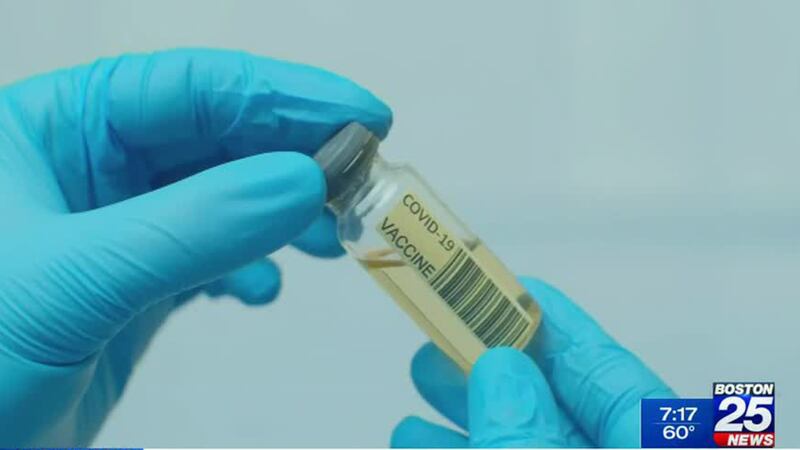BOSTON — One thing is certain about the COVID-19 pandemic: it has disproportionately affected communities of color.
As scientists race to develop a vaccine, they’re facing skepticism from many people who could benefit from it.
It’s all about trust. Many Black Americans still remember some horrific chapters in our nation’s medical history and are concerned the past could repeat itself.
A recent Axios/IPSOS survey asked people if they’ll get a first generation COVID-19 vaccine when it becomes available. While more than half of the Hispanic and white respondents say yes, just 28% of those who are Black say they’d get inoculated.
When Priscilla Flint-Banks, one of the founding members of the Black Boston COVID-19 Coalition, was asked about getting the vaccine, she said she didn’t know if she would get a shot.
The stakes are high. Black Americans are about two and a half times more likely to die from COVID-19 than white Americans.
Flint-Banks said there is so much skepticism about the medical establishment in the Black community because of two well-known cases.
The first is the Tuskegee Syphilis Experiment, which started back in the 1930s. Hundreds of Black men were recruited for a study and then denied treatment as the disease worsened.
Then there’s the case of Henrietta Lacks. She was a poor woman from Baltimore whose cancer cells were widely used for studies without her consent.
“I would say that skepticism is well deserved and well earned,” said Dr. Joseph Betancourt, a Vice President and the Chief Equity and Inclusion Officer at Mass General.
Betancourt says gaining acceptable for a vaccine in hard hit communities is challenging, but critical, considering that many residents live in multi-generation households and are front line workers.
“They don’t have the luxury to work at home and ultimately getting them the vaccine is absolutely critical, not only for their health, but for them getting back into the workforce, and being able to be in the workforce safely,” he said.
Another concern is a lack of diversity among test subjects for the vaccines. Betancout says that’s needed to assure any vaccine will be widely effective.
“It gives us confidence that . . . any vaccine we’re studying is really as functional among men as it is women, old as it is young, Black as it is white,” he said.
Louis Elisa, another leader in the Black Boston COVID-19 Coalition, said white people have more trust in the medical system because it has worked for them.
When asked what he is looking for in terms of participation, Elisa said, “I am looking for respect and equity. That’s the first thing. I’m looking for assurances that they’re going to test us properly.”
It’s an urgent situation with the dark cloud of history hanging over it, making the future even more uncertain.
When asked what’s at risk for the community if people don’t take this vaccine, Flint-Banks paused and then said, “I think a lot more of us will die.”
Dr. Betancourt told Boston 25 News the medical community has made good strides and that there are more safeguards now built into the entire research process.
He added that work still needs to be done communicating that message to community leaders.
MORE: Scientists, activists call for Moderna to ‘free the vaccine’ for COVID-19
Download the free Boston 25 News app for up-to-the-minute push alerts
>> Complete local and national coronavirus coverage here
RESOURCES:
- Massachusetts Coronavirus Information
- Boston Coronavirus Information
- Follow us on Facebook and Twitter | Watch Boston 25 NOW







